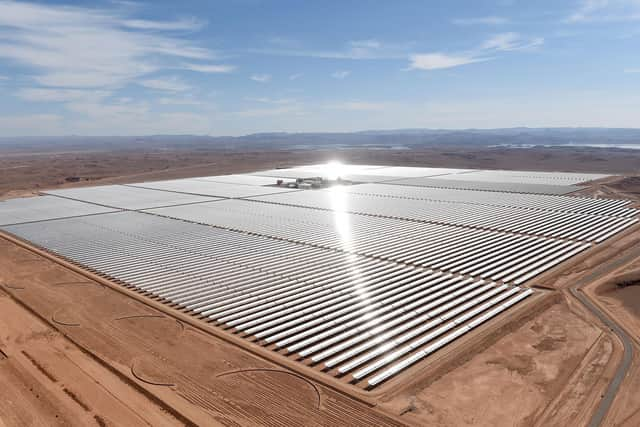How Scotland is working with African countries on a massive renewable energy boom – Dr Richard Dixon
Scotland is working with key partners in Africa to share expertise and learn from each other on renewable energy. In the early 2000s, I was invited by the director in charge of the Scottish Government’s energy policy to take part in a video meeting with government officials in Malawi. The main focus at the time was how to keep the existing big hydropower schemes running.
This relationship with Malawi has continued, with a formal renewable energy programme which helped build institutional knowledge of renewables, share case studies of success and build wind power capacity. Recent work with local Malawian NGO Community Energy Malawi aims to help roll out decentralised renewable energy projects to rural areas which might otherwise wait many years to be connected to the national electricity grid.
Advertisement
Hide AdAdvertisement
Hide AdLast week representatives from Malawi, Rwanda and Zambia visited the Scottish end of the SG Global Renewables Centre, based at Strathclyde University, to cement a new four-nation partnership on renewable energy. Funded by the Scottish Government, the centre was formed in 2022 with the aim of linking up renewable energy experience in Scotland and our three international development partner countries. The scope is expected to expand to include other countries in due course.


In Scotland, we may worry about electricity and gas prices, but in Africa the concerns are usually more fundamental. In Malawi, for instance, 85 per cent of people are not connected to any kind of electricity grid. Many people’s health suffers because of indoor air pollution caused by the use of wood for cooking.
Providing affordable clean energy is one of the UN’s Sustainable Development Goals and there is already a lot of interest in Africa in renewable energy as the future of energy development across the continent. The African Union has endorsed a target of over 300 gigawatts of new renewable energy added by 2030 – almost as much as all the existing renewable energy capacity in the European Union in 2022. The African Renewable Energy Initiative aims to deliver this objective and is supported by 54 countries.
An equal partnership
The Scottish Government has been funding projects in the three partner countries since 2012 through the Climate Justice Fund and these projects often rely on existing or new renewable energy technologies. The SG Global Renewables Centre now aims for the development of further project ideas to be led by the African partners, with opportunities to amplify the voices of those from Africa, and equal exchange of knowledge between all four partners, rather than a flavour of Scotland leading the others in what to do, as might have been the case in similar past projects.
The first steps for the centre’s work have involved identifying the key players, legal frameworks and key sources of funding. In January, the new partners were appointed: the Renewable Energy Associations of Malawi, Rwanda and Zambia. Their visit to Scotland last week was the first in-person meeting of all four partners.
Africa is feeling the impacts of climate change more strongly than most other places in the world and renewable energy is the only way to escape from the climate-wrecking dependence on fossil fuels. Following a renewable energy path also has benefits for rural electrification, energy security, job creation and even health.
Dr Richard Dixon is an environmental campaigner and consultant
Comments
Want to join the conversation? Please or to comment on this article.